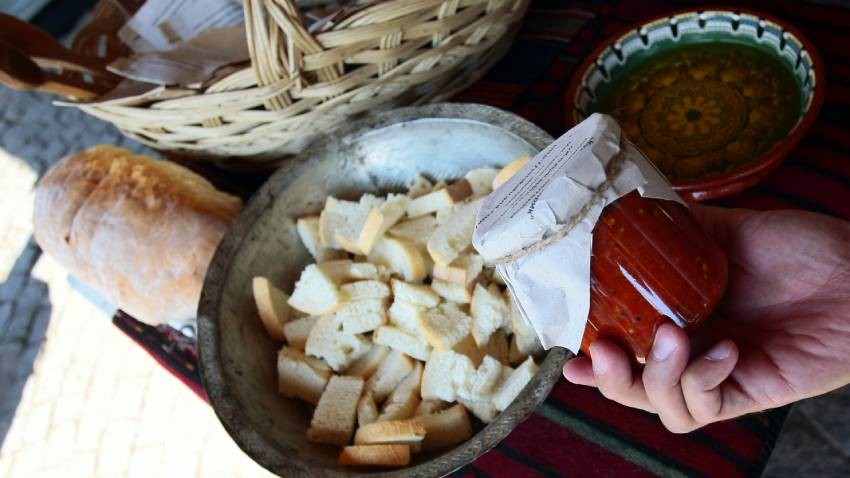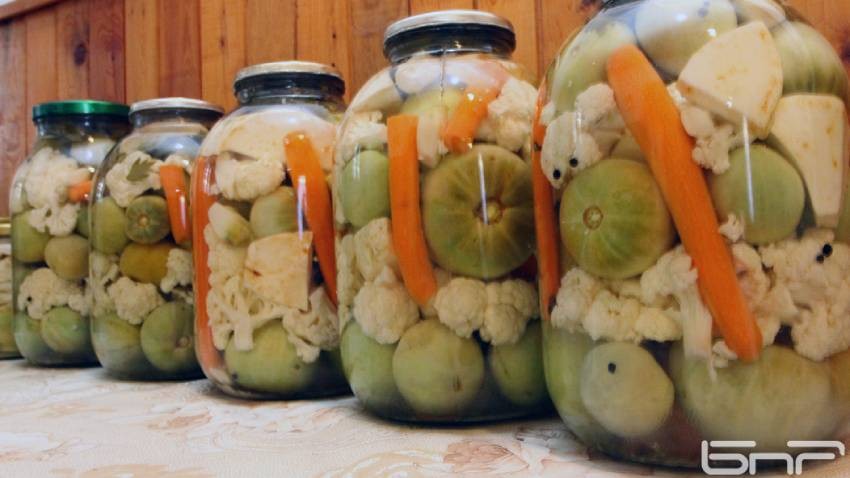Autumn is usually the best season for canning vegetables. In Bulgaria they are abundant at this time and their prices are relatively affordable. The tradition of storing fruits and vegetables for the winter is especially relevant now, when uncertainty about the future reigns and all the media warn that hard times are coming. And Bulgarians do not like surprises at all. They always make sure they have something stashed away for a rainy day. Since the end of September the prices of sweet red peppers and bell peppers have started to go up, Roma tomatoes for canning last year sold for EUR 0.50, and now they cost more than twice as much. Ready-canned fruit and vegetables, which are the second-best to home-made produce, are also barely affordable for the average household.
According to State Agency of Goods Exchange and Market-Places (SAGEMP), the auction price index has gone up by 31 per cent year-on-year, but that is not stopping people from canning and stockpiling for the winter, though in smaller quantities than usual, SAGEMP data show. And while years ago homemade pickles were prepared according to old family recipes to spice up the menu in winter, now they are seen more as a means of survival in the economic and political chaos in Bulgaria.

Capital residents, who in recent years have enjoyed the abundance of produce on offer at farmers' markets, are now also rolling up their sleeves to prepare liutenitsa (delicious chutney-like paste made of red peppers and tomatoes) and pickles for the winter.
Among the most popular autumn specialties are roasted sweet red peppers and bell peppers, chili peppers and, of course, Tsarska turshia ("Royal Pickle"), made from several varieties of peppers, cabbage, celery, cauliflower, carrots and green tomatoes. The latter, with its crunchy sweet and sour taste, combines a whole range of probiotics, prebiotics and vitamins - a failsafe defence against the 'trendy' virus strains. Pickles are the most energy-efficient to prepare, in terms of electricity, as they are neither boiled, nor roasted, but left to ferment. More time and energy consuming vegetable delights, such as lyutenitsa, are becoming increasingly unprofitable for home production, unless cooked on a wood-burning stove in an old village kitchen.
On the other hand, because of the year-round abundance of fruits and vegetables, fresh salads are an increasingly common part of the menu of Bulgarians, so people prepare less and less canned food for the winter. This year, however, around 80-90% of the country's greenhouse vegetable producers have not planted their winter produce. They point to the price of gas, pellets and electricity, which have risen three to four times and to the uncertainty for the future, as the reason. In order to avoid possible bankruptcies and production going to waste, producers have chosen not to take any risks this time.

And Bulgarians, who are slowly forgetting the taste of home-grown vegetables, will be forced, assuming of course their means allow, to buy tomatoes from Turkey and Greece, and lyutenitsa from Serbia and Macedonia.
English version: Elizabeth RadkovaPhotos: BGNES, BNR - library
Methodological assistance, teacher training, meetings and educational programs in Bulgarian language and culture for students – these are just some of the ways in which the academic community of Veliko Tarnovo University "St. Cyril and Methodius" reaches..
The Botanical Garden's Tropical Greenhouse will be open to visitors from 16 to 26 January, every day from 10 am to 4 pm. More than 30 varieties of azaleas, some of which once adorned the Royal Palace, will be in bloom. Blueberries, rhododendrons, ericas..
Novo Oryahovo is a village in north-eastern Bulgaria. It is located in a picturesque corner in the municipality of Dolni Chiflik - 2 km from the Black Sea and the nature reserve along the Kamchia River. Due to its important..
A team of 12 Bulgarian 11th grade students, led by Elitsa Pavlova, won first place among participants from around the world in the..
On the occasion of the upcoming National Holiday - March 3 and 147 years since the Liberation of Bulgaria from Ottoman rule, the..

+359 2 9336 661
